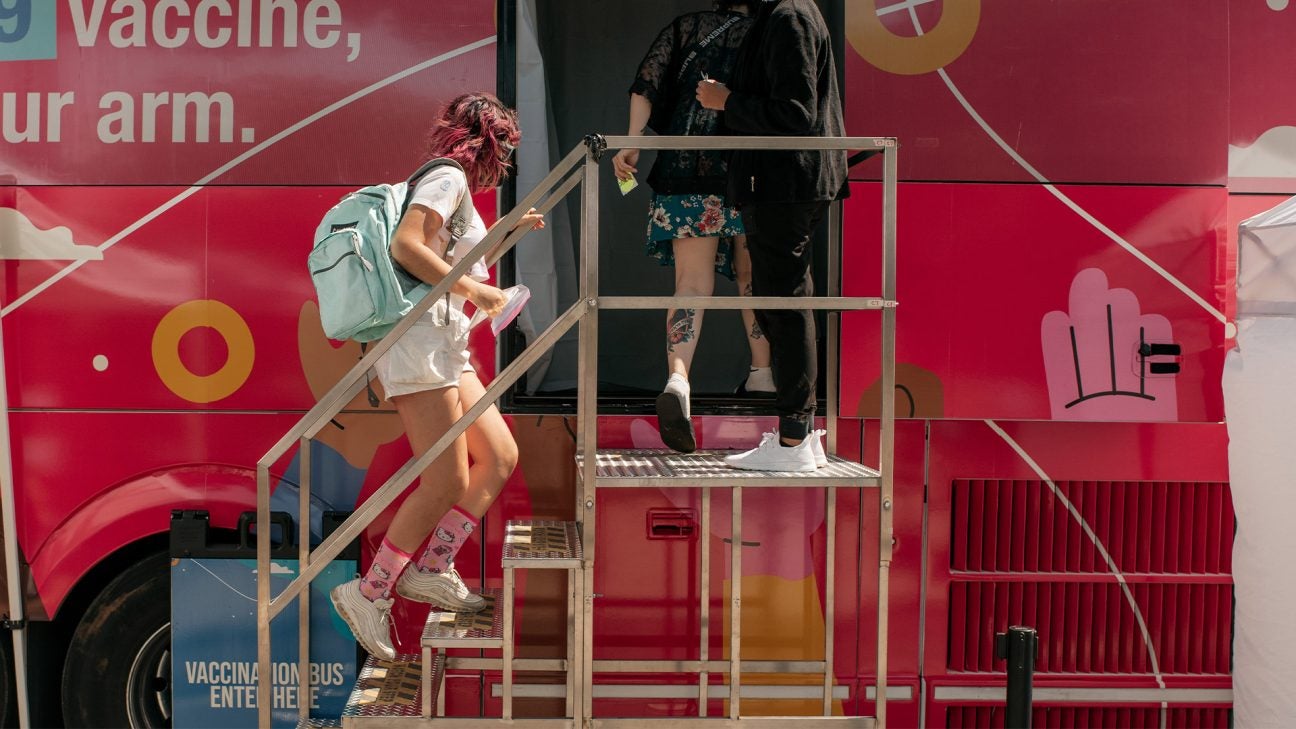Getting a Pfizer or Moderna COVID-19 Vaccine Can Drop Your Risk for Infection by 91%

New research from the Centers for Disease Control and Prevention (CDC) has found that the
messenger RNA (mRNA) vaccines used against the coronavirus reduce the risk of COVID-19
infection by 91 percent in people who are fully vaccinated. For people who are partially
vaccinated, the reduced risk drops to 81 percent.
The study, which was released this month as a preprint on MedRxiv, also shows that the
vaccines reduce the severity of illness in both fully and partially vaccinated people who
develop COVID-19.
The vaccine clinical trials conducted in 2020 showed that the mRNA vaccines produced by
Pfizer-BioNTech and Moderna were extremely effective at preventing COVID-19. Those findings
are holding up in the real world as millions of people across the world get vaccinated.
“Now with the real life data we are seeing again and again in different studies that these
vaccines are very effective,” Dr. Inci Yildirim, a Yale Medicine vaccinologist, pediatric
infectious diseases specialist, and associate professor of pediatrics, told Healthline.
“Vaccinated individuals are protected from getting the infection and transmitting the
infection to others.”
The shots prevent most infections and reduce severity of disease
The study evaluated the health data of 3,975 healthcare workers, first responders, frontline
workers, and essential workers.
The participants, who were more likely to be exposed to COVID-19 due to the nature of their
jobs, took weekly SARS-CoV-2 tests for 17 weeks.
The diagnostic tests were conducted via self-collected nasal swabs that were then tested in
a laboratory for SARS-CoV-2. The positive tests were further studied to determine the amount
of viral load in the person’s nose and the how long they were shedding virus.
The researchers evaluated the data according to the participants’ vaccination status, the
local rate of COVID-19 in their communities, and how strictly the participants used personal
protective equipment (PPE).
They found that the vaccines reduced the risk of infection by 91 percent in people who were
fully vaccinated, meaning 2 weeks past their second dose. The vaccines reduced the risk by
81 percent in people who were partially vaccinated. “Partially vaccinated” can mean anywhere
from 14 days after their first dose to 13 days after their second dose.
The researchers also found that fully and partially vaccinated people who still developed
COVID-19 were more likely to have milder illnesses compared to those who were unvaccinated.
On average, vaccinated people who got COVID-19 spent about 6 fewer days feeling sick and 2
fewer days sick in bed. Compared to unvaccinated people, those who had one or both doses of
the shots also had a up to a 66 percent lower chance of developing symptoms like fever and
chills.
Other studies have found that vaccinated people who contract the coronavirus have lower
viral loadsTrusted Source. As a result, they’re less likely to pass the virus to other
people.
Researchers are still working to understand how viral load correlates to infectivity, but
evidence from varicella and influenza suggest lower viral loads are likely linked to reduced
spread of infection.
What experts think of the findings
The findings add to a growing collection of evidence showing that mRNA shots are both safe
and effective.
“Given what we already know from previous studies, these data are not surprising. These
vaccines have been proven to be safe and effective at preventing infection with COVID-19,”
said Dr. Annabelle de St. Maurice, an assistant professor of pediatrics and co-chief
infection prevention officer at UCLA Health.
According to de St. Maurice, it’s worth noting that the participants included in the study
may differ from the general population “in terms of health, co-morbidities, and immune
status.”
The mRNA vaccines teach our immune system to make a protein or even just a piece of a
protein that then triggers the immune system. Once the immune system is triggered, it’s more
prepared to attack the coronavirus and stop an infection from developing.
Choosing the right antigen (piece of the virus that the vaccine will help our bodies
identify and attack) is crucial to the success of the vaccine, explained Yildirim.
“Spike protein that is the common target in both mRNA vaccines available has been studied
since MERS and is a very good trigger for the immune system to get activated and produce
neutralizing antibodies,” explained Yildirim.
“Although we have seen some mutations with the SARS-CoV-2 virus (the virus that causes
COVID-19), scientists are still finding that the vaccines are highly effective,” said de St.
Maurice.